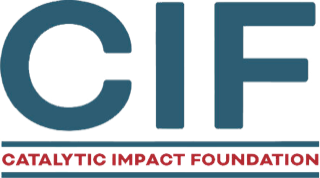Founding Change: The Milken Women’s Health Network
It’s 2025, and more than half the world’s population is still treated as a medical afterthought. For decades, the data driving our healthcare systems—and the dollars funding them—have been built around men. Until the 1990s, women were largely excluded from clinical trials. Even now, women represent barely 30% of participants in early-phase studies, and diseases that primarily affect them receive a fraction of the R&D dollars their prevalence warrants.
This imbalance has real-world consequences. Conditions like endometriosis, autoimmune disease, and cardiovascular illness in women are diagnosed later, treated less effectively, and too often dismissed as “niche.” As a result, the world loses not just health outcomes—but economic power. Closing the women’s health gap could boost the global economy by at least $1 trillion annually by 2040. That’s why the Milken Institute’s Women’s Health Network, launched in April 2025 with Dr. Jill Biden as Chair, is such a pivotal moment (Milken Institute, 2025).
Rebalancing the Equation
The Network’s premise is simple but radical. It starts from a simple truth: the way we fund innovation decides which problems the world chooses to solve. Today, only 5% of global R&D funding is dedicated specifically to women’s health—and most of that focuses narrowly on fertility and oncology. The result is a medical landscape where whole categories of disease—pain, mental health, hormonal and immune conditions—are left without serious investment. The Women’s Health Network aims to fix that by building an ecosystem that unites capital, science, and policy. Its founding members include global research institutions, health systems, philanthropies, investors, and… (drumroll please): The Catalytic Impact Foundation—all working toward a single goal: to make women’s health research, funding, and innovation a coordinated field rather than a collection of disconnected efforts.
Why CIF Joined
For the Catalytic Impact Foundation (CIF), joining the Milken Institute’s Women’s Health Network as a founding member was a clear decision. Our mission has always been to back the innovators working where others don’t—founders transforming neglected areas like maternal health, rare disease, and neuroimmune disorders into investable, scalable solutions. Women are driving this change, which is why more than half of CIF’s portfolio companies are women-led, tackling systemic blind spots through science and technology. Their work proves that when capital reaches new hands, innovation expands its reach. The Women’s Health Network gives these leaders a platform to collaborate, scale, and accelerate faster. Our role in all of this? CIF will help design frameworks for funding alignment, adoption pathways, and inclusion metrics—ensuring that catalytic capital and follow-on investment stay focused on impact over just exits.
Milken’s Blueprint for Change
In its first year, the Network plans to:
Build a digital collaboration platform connecting researchers, investors, and innovators through shared data and infrastructure.
Establish a pooled investment fund for women’s health research and commercialization.
Launch proof-of-concept pilots demonstrating how coordinated networks can move treatments from lab to patient faster.
As Milken’s President, Michael Klowden, noted: “We need to stop treating women’s health as a special topic—it is central to the health of every community and every economy” (Milken Institute, 2025).
What This Means for All of Us
This isn’t just a milestone for women—it’s a signal for the entire health innovation system. When we fund inclusively, we discover more. When we design for diversity, outcomes improve for everyone. CIF’s partnership with the Milken Institute Women’s Health Network marks the next chapter in that mission: turning capital into coordination, coordination into innovation, and innovation into impact.
Because when half the population is finally centered in the health conversation, the whole world gets healthier.
Read the official launch announcement:
Milken Institute — Women’s Health Network Launch

